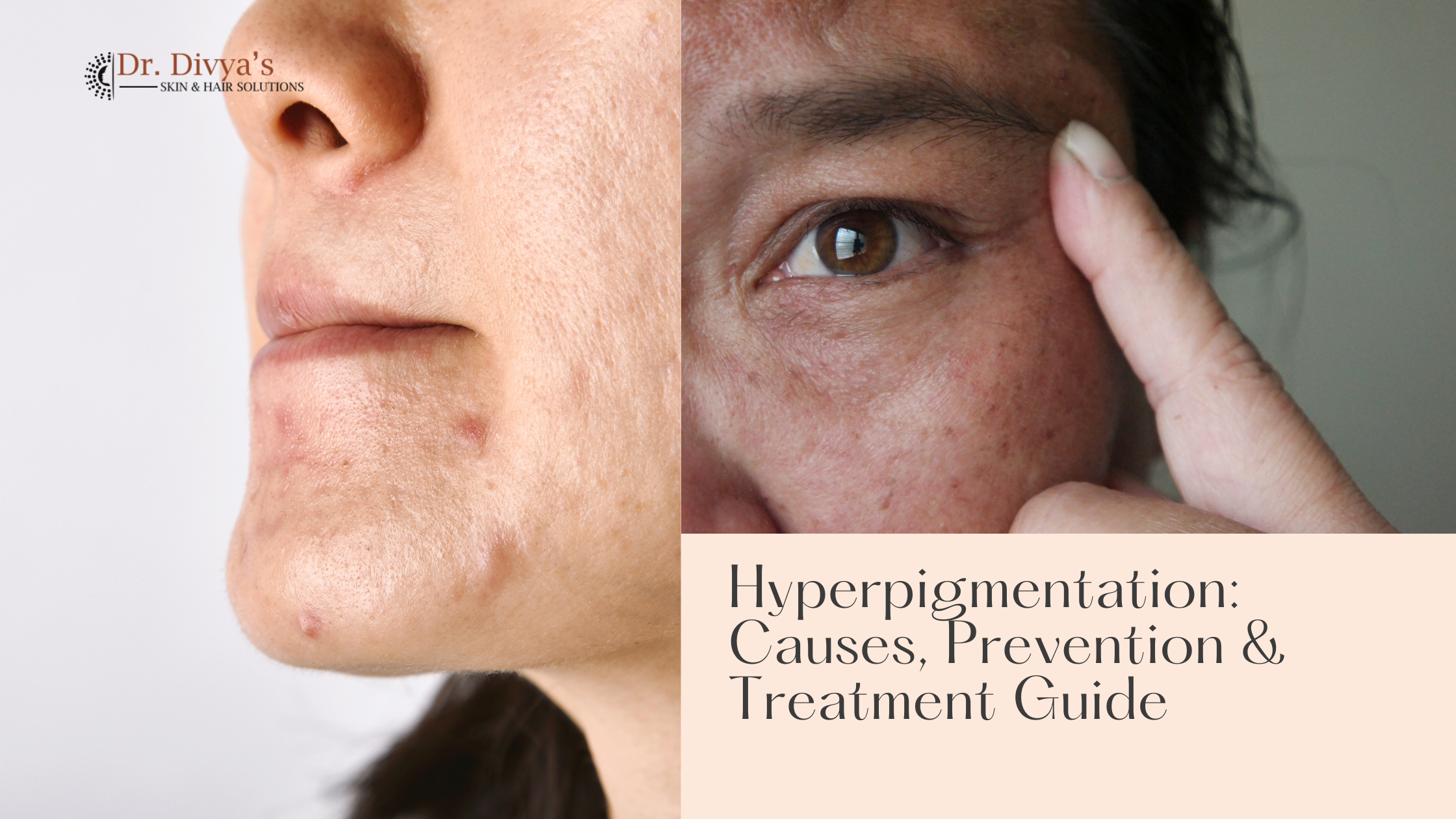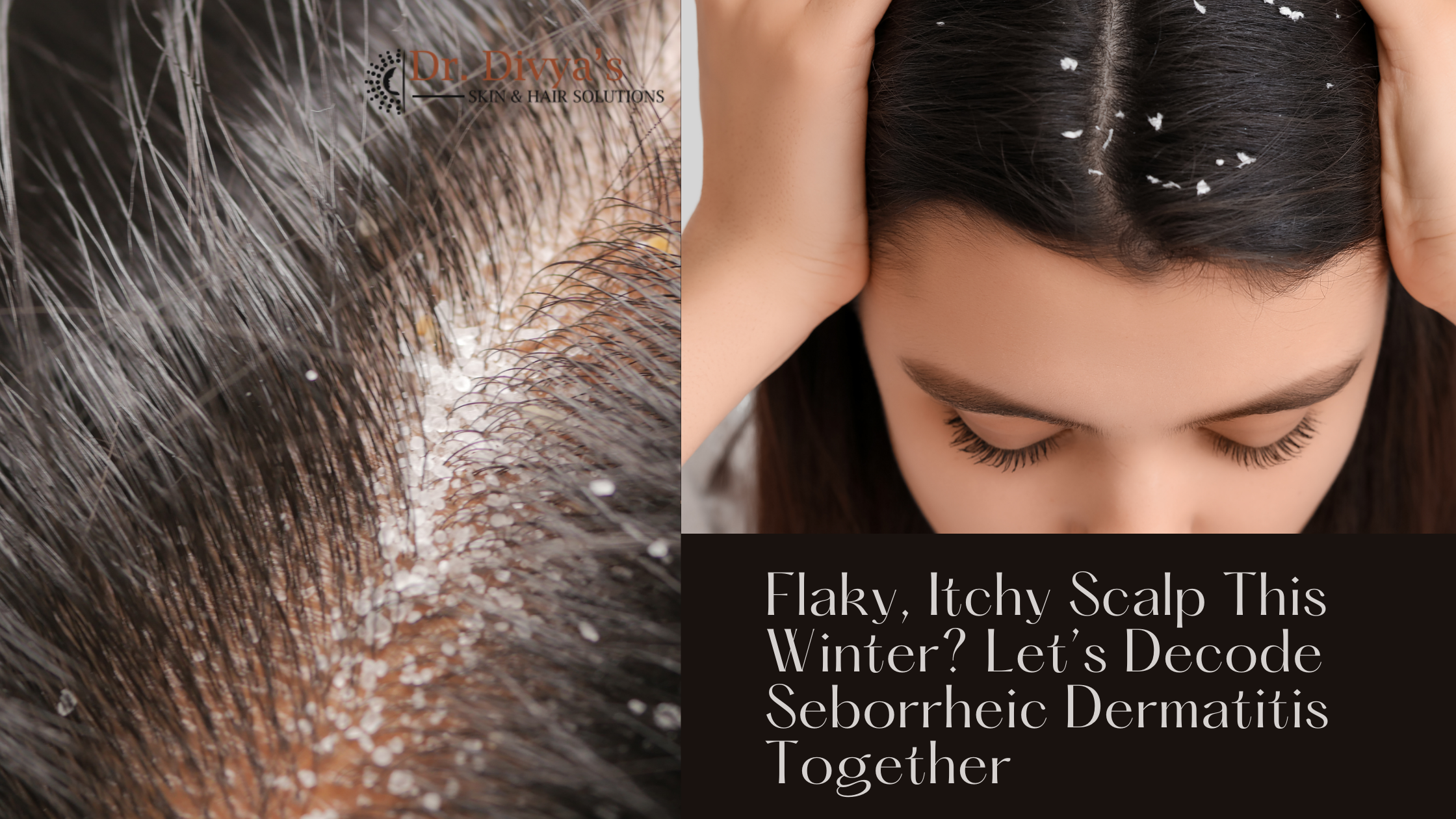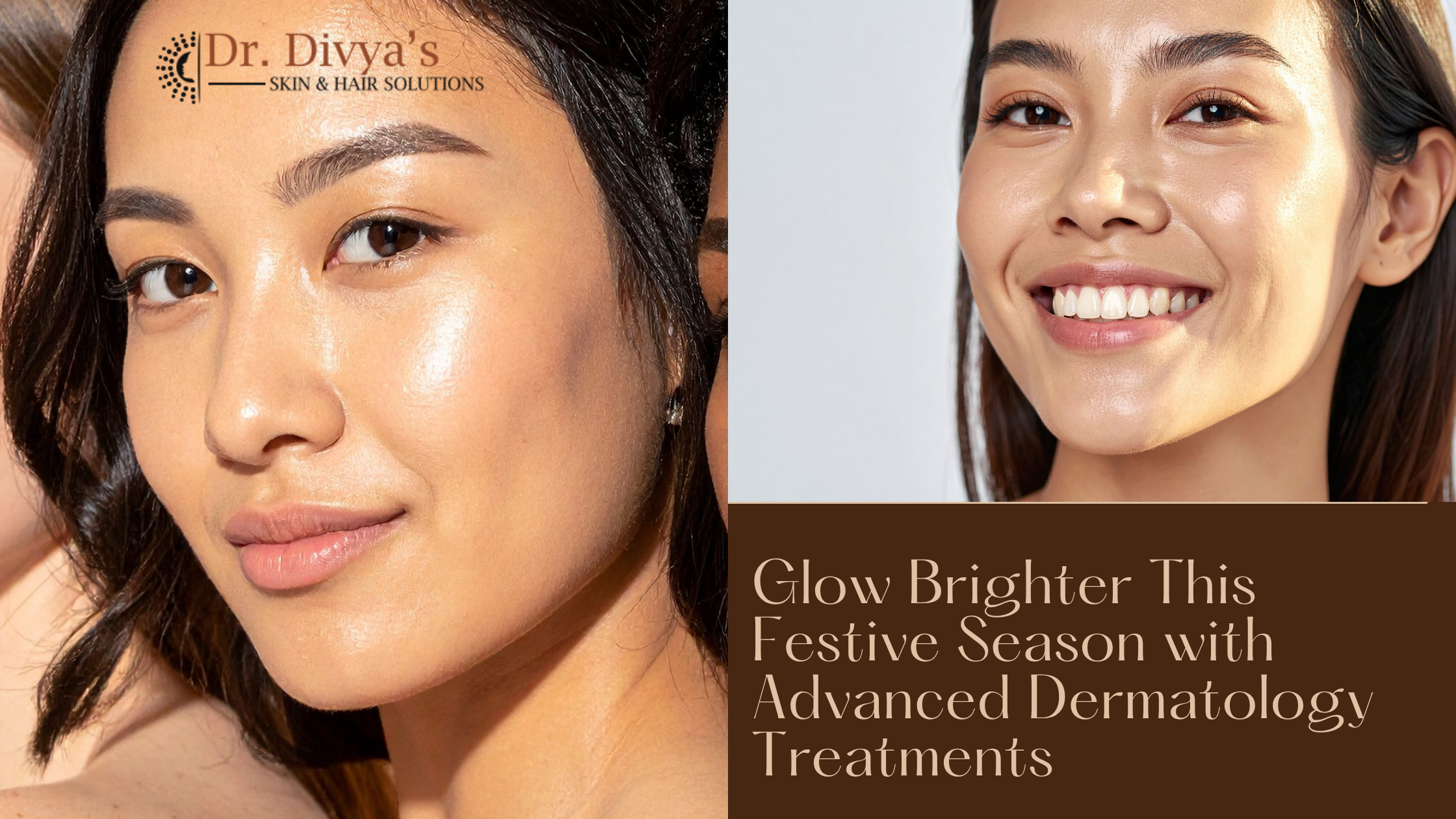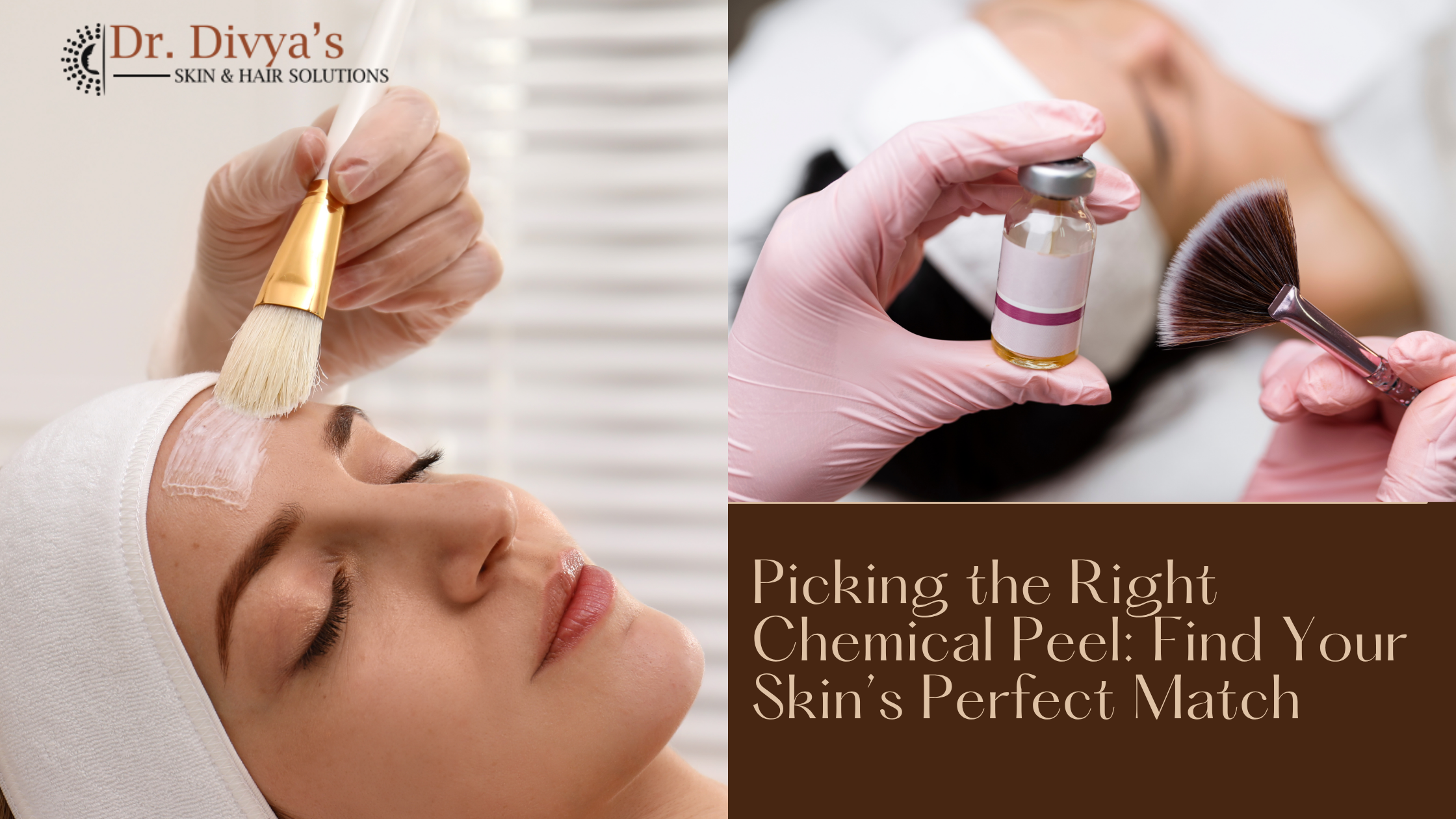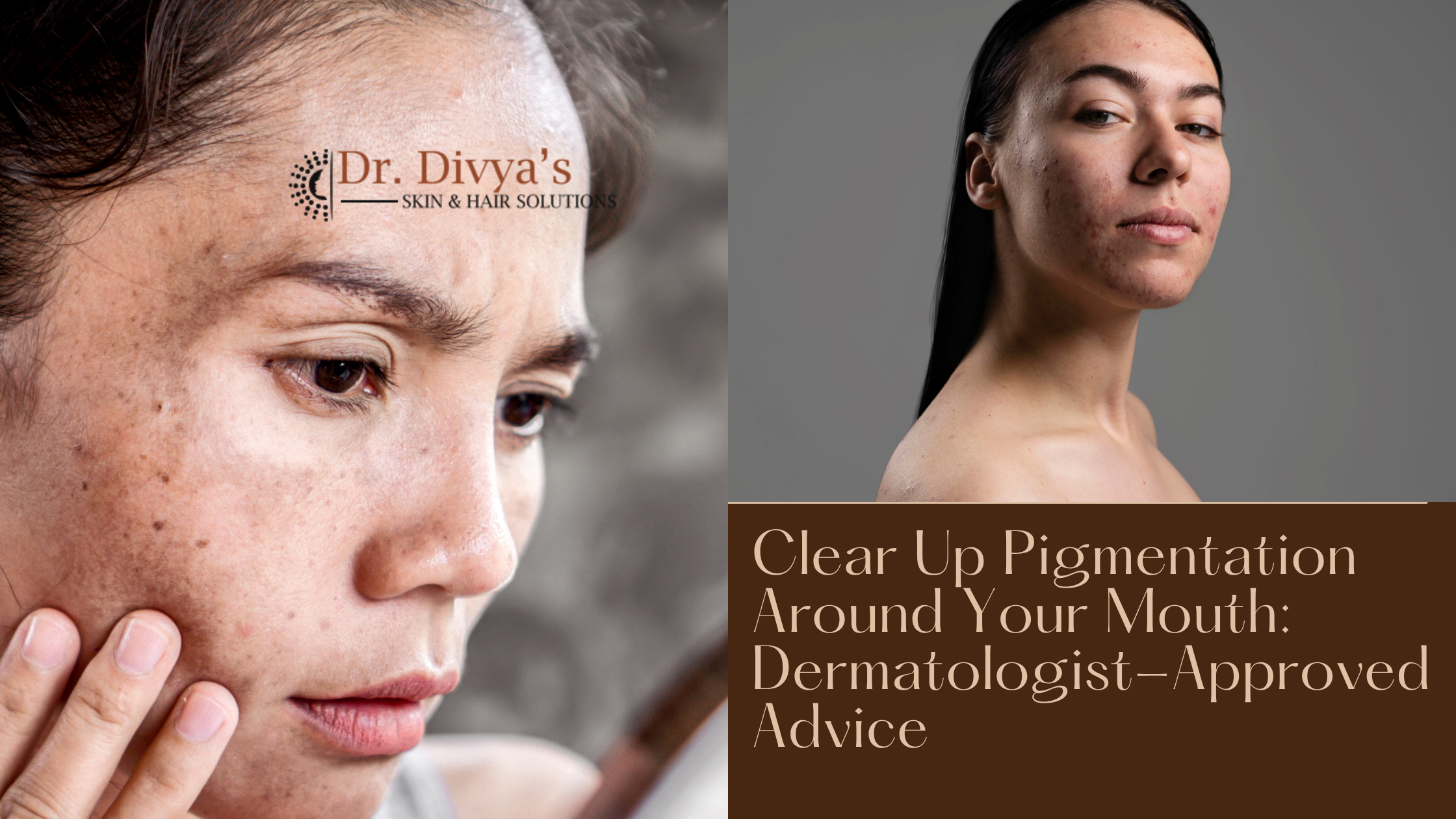Posted date on Sep 08, 2025
Skin is the body's largest organ and one of the first things people notice about us. But for many, skin concerns like hyperpigmentation can affect both appearance and confidence. If you've ever noticed dark spots, uneven skin tone, or patches of discoloration, you may be dealing with hyperpigmentation. The good news? With the right care, lifestyle changes, and treatments, it can be managed effectively.
In this guide, we'll cover everything you need to know about hyperpigmentation-its causes, prevention, and treatment options.
What is Hyperpigmentation?
Hyperpigmentation is a common skin condition where certain areas of the skin appear darker than the surrounding skin. This happens due to an excess production of melanin (the pigment responsible for skin, hair, and eye color). While hyperpigmentation is not harmful, it can be a cosmetic concern for many people.
Common Causes of Hyperpigmentation
- Sun Exposure
The sun is the leading cause of hyperpigmentation. UV rays trigger melanin production, which often leads to tanning and, over time, dark spots or sunspots.
2 . Hormonal Changes
Conditions like melasma are often linked to hormonal fluctuations, especially during pregnancy or while taking birth control pills.
3. Post-Inflammatory Hyperpigmentation (PIH)
After acne, cuts, burns, or skin injuries, the skin may develop dark marks as it heals.
4. Certain Medications
Some drugs, including chemotherapy medications, can cause pigmentation as a side effect.
5 . Genetics
A family history of pigmentation issues can make someone more prone to hyperpigmentation.
How to Prevent Hyperpigmentation
Prevention is always better than treatment. Here are some tips:
- Use Sunscreen Daily: Apply broad-spectrum SPF 30 or higher every day, even indoors.
- Avoid Picking at Skin: Don't squeeze pimples or scratch wounds, as it can lead to dark marks
- Wear Protective Clothing: Hats, sunglasses, and long sleeves can minimize sun damage.
- Maintain a Healthy Diet: Foods rich in antioxidants like Vitamin C and E can help protect skin cells.
- Choose Gentle Skincare: Avoid harsh scrubs that can irritate the skin.
Treatment Options for Hyperpigmentation
Depending on the severity, there are both home remedies and professional treatments available:
1. Topical Treatments
Topical treatments must always be started after consultation with a dermatologist
- Vitamin C: Brightens skin and reduces dark spots.
- Retinoids: Improve cell turnover and fade discoloration.
- Hydroquinone: A strong skin-lightening ingredient (used under medical supervision).
- Niacinamide: Helps reduce pigmentation and improves skin texture.
2. Professional Procedures
Professional procedures must always be done under the supervision of a qualified dermatologist
- Chemical Peels: Use acids to exfoliate and lighten pigmentation.
- Laser Therapy: Targets deep pigmentation with precision.
- Microdermabrasion: Gently removes the top layer of skin, improving skin tone.
- Microneedling: Stimulates collagen and helps even out pigmentation.
When to See a Dermatologist?
If pigmentation spreads quickly, appears suddenly, consult a dermatologist. They can identify underlying causes and suggest medical treatments tailored to your skin type.
Conclusion
Hyperpigmentation is a common skin issue, but it doesn't have to affect your confidence permanently. By understanding its causes, practicing daily sun protection, and exploring the right treatments, you can achieve clearer, brighter, and healthier-looking skin.
Remember-patience is key. Most pigmentation treatments take time, and consistency is essential for long-lasting results.
FAQs on Hyperpigmentation
1. Can hyperpigmentation go away on its own?
In mild cases, such as post-acne marks or sunspots, hyperpigmentation may fade over time with proper skincare and sun protection. However, more stubborn pigmentation often requires medical treatments or topical products for faster results.
2. What is the fastest way to remove hyperpigmentation?
Professional treatments like chemical peels, laser therapy, or prescription creams usually deliver quicker results. Still, consistency and patience are key-pigmentation doesn't vanish overnight.
3. Is hyperpigmentation permanent?
Most types of hyperpigmentation are not permanent. With the right skincare routine and treatments, dark spots can significantly lighten or disappear. However, new pigmentation may occur if sun protection and preventive care are ignored.
4. Which foods are good for reducing hyperpigmentation?
Foods rich in Vitamin C, Vitamin E, and antioxidants-such as citrus fruits, leafy greens, nuts, and berries-support skin repair and may help reduce pigmentation over time.
5. Can hyperpigmentation be prevented?
Yes! The most effective prevention is daily sunscreen use, avoiding skin picking, maintaining a healthy diet, and choosing gentle skincare products. Preventive care helps reduce the risk of future dark spots and uneven skin tone.
Take the first step towards healthy, glowing, and confident skin with Dr. Divya Sharma, one of Bangalore's most trusted dermatologists. Whether you're struggling with hyperpigmentation, acne, hair fall, or any other skin concern, Dr. Sharma's expert guidance and advanced treatments ensure you get safe and effective results tailored to your needs. Don't wait for flawless skin-book your consultation today and let your skin shine at its best!
